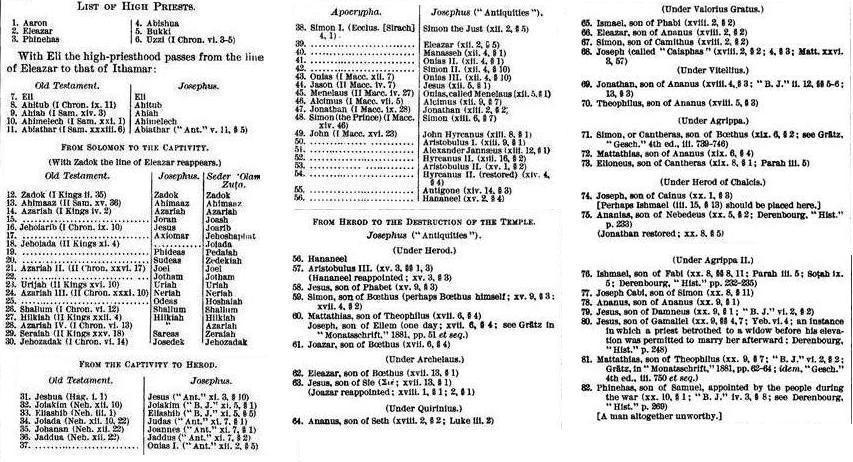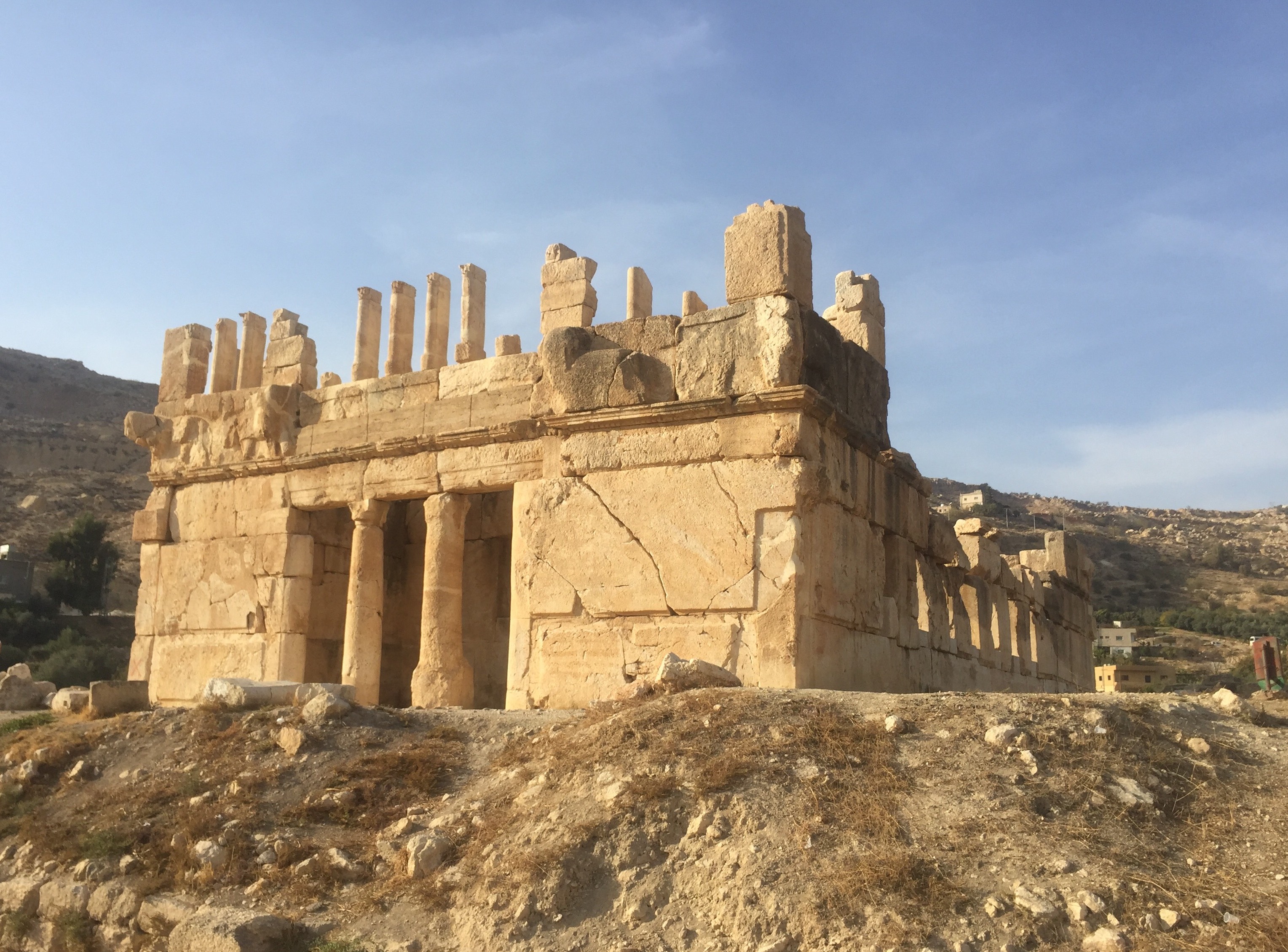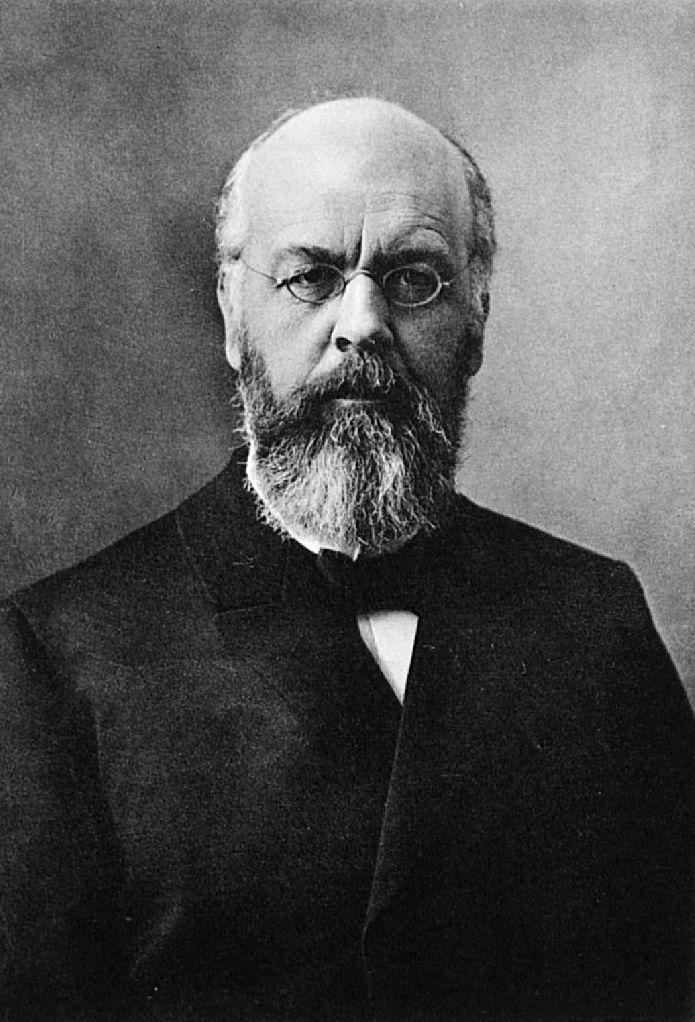|
Menelaus (High Priest)
Menelaus ( he, מנלאוס) was High Priest in Jerusalem from about 172 BC to about 161 BC. He was high priest at the beginning of the Maccabean revolt (167-160). He was the successor of Jason, the brother of Onias III. The sources are divided as to his origin. According to II Maccabees, he belonged to the Tribe of Benjamin and was the brother of the Simeon who had denounced Onias III to Seleucus IV Philopator, and revealed to the Syrians the existence of the treasure of the Temple; according to Flavius Josephus, Menelaus was the brother of Onias III and Jason, his two predecessors as High Priest, and also bore the name Onias. It is possible that Josephus confused Simeon, the brother of Menelaus, with Simeon, the father of Onias and Jason. Hellenizing tendencies Although during the three years of his pontificate Jason had given many proofs of his attachment to the Hellenistic party (by building a gymnasium in Jerusalem and by introducing many Greek customs) the Hellenists of t ... [...More Info...] [...Related Items...] OR: [Wikipedia] [Google] [Baidu] |
List Of High Priests Of Israel
This article gives a list of the High Priests (''Kohen Gadol'') of Ancient Israel up to the destruction of the Second Temple in 70 AD. Because of a lack of historical data, this list is incomplete and there may be gaps. High Priests of Israel The High Priests, like all Levitical priests, belonged to the Aaronic line. The Bible mentions the majority of high priests before the Babylonian captivity, but does not give a complete list of office holders. Lists would be based on various historical sources. In several periods of gentile rule, high priests were appointed and removed by kings. Still, most high priests came from the Aaronic line. One exception is Menelaus, who may not have been from the Tribe of Levi at all, but from the Tribe of Benjamin. From the Exodus to Solomon's Temple The following section is based on information found in the various books of the Bible, including the genealogies given in First Book of Chronicles and the Book of Ezra, the works of Josephus and ... [...More Info...] [...Related Items...] OR: [Wikipedia] [Google] [Baidu] |
Tobiads
The Tobiads were a Jewish faction in Ammon at the beginning of the Hasmonean period. They were philhellene, supporters of Hellenistic Judaism, in the early years of the 2nd century BCE. What is known about the Tobiads is a combination of statements of Josephus (''Antiquities of the Jews'' xii. 160-236) and of 2 Maccabees . There are two accounts, both legendary, the hero of the one being Joseph, and of the other, Hyrcanus. Narrative During the reign of the Egyptian king Ptolemy and his wife Cleopatra, the high priest Onias, who was feeble-minded and extremely miserly, refused to pay the Jewish tribute of twenty talents which his father, Simon the Just, had always given from his own means. In his anger the king sent Athenion as a special envoy to Jerusalem, threatening to seize the land of the Jews and to hold it by force of arms if the money was not forthcoming. Although the high priest disregarded this threat, the people were greatly excited, whereupon Onias' nephew Jos ... [...More Info...] [...Related Items...] OR: [Wikipedia] [Google] [Baidu] |
Alcimus
Alcimus (from grc-gre, Ἄλκιμος ''Alkimos'', "valiant" or Hebrew אליקום ''Elyaqum'', "God will rise"), also called Jakeimos, Jacimus, or Joachim (), was High Priest of Israel for three years from 162–159 BCE. He was a moderate Hellenizer who favored the ruling government of the Seleucid Empire (Greek Syria) and opposed the Maccabean Revolt which was in progress at the time. Original sources What is known of Alcimus comes from records found in 1 Maccabees (, ); 2 Maccabees (); and Josephus's ''Antiquities of the Jews'' Book 12, Chapters 9-11. All of these sources are hostile to Alcimus; no sources from his faction's perspective survived. Alcimus is described as a leader of the Hellenizing faction of Hellenistic Judaism that favored more enthusiastic adoption of Greek practices and less adherence to Jewish law. Biography The office of high priest was recently vacant in 163 BCE after despised High Priest Menelaus was executed by Regent Lysias. It is not clear if M ... [...More Info...] [...Related Items...] OR: [Wikipedia] [Google] [Baidu] |
Emil Schürer
Emil Schürer (2 May 184420 April 1910) was a German Protestant theologian known mainly for his study of the history of the Jews around the time of Jesus' ministry. Biography Schürer was born in Augsburg. After studying at the universities of Erlangen, Berlin and Heidelberg from 1862 to 1866, he became in 1873 professor ''extraordinarius'' at Leipzig. Later on, he served as professor ''ordinarius'' at the universities of Giessen (from 1878), Kiel (from 1890) and Göttingen (from 1895 to 1910). In 1876 he founded and edited th''Theologische Literaturzeitung'' which he edited with Adolf von Harnack from 1881 to 1910. He died after a long illness in 1910 in Göttingen. Works His elaborate work on the history of the Jews in the time of Christ, ''Geschichte des jüdischen Volkes im Zeitalter Jesu Christi'' (1886–1890; 4th edition 1901–1909), made him one of the best known of modern German scholars in Great Britain and the United States. The second edition was translated into Engli ... [...More Info...] [...Related Items...] OR: [Wikipedia] [Google] [Baidu] |
Heinrich Grätz
Heinrich Graetz (; 31 October 1817 – 7 September 1891) was amongst the first historians to write a comprehensive history of the Jewish people from a Jewish perspective. Born Tzvi Hirsch Graetz to a butcher family in Xions (now Książ Wielkopolski), Grand Duchy of Posen, in Prussia (now in Poland), he attended Breslau University, but since Jews at that time were barred from receiving Ph.D.s there, he obtained his doctorate from the University of Jena.''Encyclopaedia Judaica'' (2007, 2nd ed.) entry on "Graetz, Heinrich," by Shmuel Ettinger and Marcus Pyka After 1845 he was principal of the Jewish Orthodox school of the [...More Info...] [...Related Items...] OR: [Wikipedia] [Google] [Baidu] |
Antiochus V Eupator
Antiochus V Eupator (Greek: ''Αντίοχος Ε' Ευπάτωρ''), whose epithet means "of a good father" (c. 172 BC – 161 BC) was a ruler of the Greek Seleucid Empire who reigned from late 164 to 161 BC (based on dates from 1 Maccabees 6:16 and 7:1). He was appointed as king by the RomansAppian ''Roman History'', Syrian Wars 8.46. with his protector Lysias as regent. Biography Early life and succession Antiochus V was only nine years old when he succeeded to the kingship, following the death in Persia of his father Antiochus IV Epiphanes and his mother Laodice IV. The general Lysias, who had been left in charge of Syria by Epiphanes, served as regent for the child, although he was challenged by other generals. The Roman Senate still kept Demetrius, son of Seleucus IV and the rightful heir to the throne, as hostage, refusing to release him because they considered it better to have Syria nominally ruled by a boy and his regent than the 22-year-old Demetrius. Reign At th ... [...More Info...] [...Related Items...] OR: [Wikipedia] [Google] [Baidu] |
Maccabees
The Maccabees (), also spelled Machabees ( he, מַכַּבִּים, or , ; la, Machabaei or ; grc, Μακκαβαῖοι, ), were a group of Jewish rebel warriors who took control of Judea, which at the time was part of the Seleucid Empire. They founded the Hasmonean dynasty, which ruled from 167 BCE to 37 BCE, being a fully independent kingdom from about 110 to 63 BCE. They reasserted the Jewish religion, partly by forced conversion, expanded the boundaries of Judea by conquest and reduced the influence of Hellenism and Hellenistic Judaism. Etymology The name Maccabee is often used as a synonym for the entire Hasmonean dynasty, but the Maccabees proper were Judas Maccabeus and his four brothers. The name Maccabee was a personal epithet of Judah, and the later generations were not his direct descendants. One explanation of the name's origins is that it derives from the Aramaic ''maqqəḇa'', "the hammer", in recognition of Judah's ferocity in battle. The tra ... [...More Info...] [...Related Items...] OR: [Wikipedia] [Google] [Baidu] |
Antiochus IV Epiphanes
Antiochus IV Epiphanes (; grc, Ἀντίοχος ὁ Ἐπιφανής, ''Antíochos ho Epiphanḗs'', "God Manifest"; c. 215 BC – November/December 164 BC) was a Greek Hellenistic king who ruled the Seleucid Empire from 175 BC until his death in 164 BC. He was a son of King Antiochus III the Great. Originally named Mithradates (alternative form ''Mithridates''), he assumed the name Antiochus after he ascended the throne. Notable events during Antiochus's reign include his near-conquest of Ptolemaic Egypt, his persecution of the Jews of Judea and Samaria, and the rebellion of the Jewish Maccabees. Antiochus's accession to the throne was controversial, and he was seen as a usurper by some. After the death of his brother Seleucus IV Philopator in 175 BC, the "true" heir should have been Seleucus's son Demetrius I. However, Demetrius I was very young and a hostage in Rome at the time, and Antiochus seized the opportunity to declare himself king instead, successfully ... [...More Info...] [...Related Items...] OR: [Wikipedia] [Google] [Baidu] |
Flavius Josephus
Flavius Josephus (; grc-gre, Ἰώσηπος, ; 37 – 100) was a first-century Romano-Jewish historian and military leader, best known for ''The Jewish War'', who was born in Jerusalem—then part of Roman Judea—to a father of priestly descent and a mother who claimed royal ancestry. He initially fought against the Romans during the First Jewish–Roman War as head of Jewish forces in Galilee, until surrendering in 67 AD to Roman forces led by Vespasian after the six-week siege of Yodfat. Josephus claimed the Jewish Messianic prophecies that initiated the First Jewish–Roman War made reference to Vespasian becoming Emperor of Rome. In response, Vespasian decided to keep Josephus as a slave and presumably interpreter. After Vespasian became Emperor in 69 AD, he granted Josephus his freedom, at which time Josephus assumed the emperor's family name of Flavius. Simon Claude Mimouni, ''Le Judaïsme ancien du VIe siècle avant notre ère au IIIe siècle de notre ère : Des p ... [...More Info...] [...Related Items...] OR: [Wikipedia] [Google] [Baidu] |
Maccabean Revolt
The Maccabean Revolt ( he, מרד החשמונאים) was a Jewish rebellion led by the Maccabees against the Seleucid Empire and against Hellenistic influence on Jewish life. The main phase of the revolt lasted from 167–160 BCE and ended with the Seleucids in control of Judea, but conflict between the Maccabees, Hellenized Jews, and the Seleucids continued until 134 BCE, with the Maccabees eventually attaining independence. Seleucid King Antiochus IV Epiphanes launched a massive campaign of repression against the Jewish religion in 168 BCE. The reason he did so is not entirely clear, but it seems to have been related to the King mistaking an internal conflict among the Jewish priesthood as a full-scale rebellion. Jewish practices were banned, Jerusalem was placed under direct Seleucid control, and the Second Temple in Jerusalem was made the site of a syncretic Pagan-Jewish cult. This repression triggered exactly the revolt that Antiochus IV had feared, with a group ... [...More Info...] [...Related Items...] OR: [Wikipedia] [Google] [Baidu] |
Temple Treasury
The temple treasury was a storehouse (Hebrew אוצר 'otsar) first of the tabernacle then of the Jerusalem Temples mentioned in the Hebrew Bible. The term "storehouse" is generic, and also occurs later in accounts of life in Roman Palestine where the ''otzar'' was a tax-collector's grainhouse. The first mention of the "treasury of the " occurs in Joshua 6:19 where all the silver and gold vessels are consecrated to a "storehouse" which travelled with the tabernacle. Later, this was made permanent in the First Temple, till the treasury was pillaged by Nebuchadnezzar's army. In the Second Temple, the treasury was used for storing the grain for the Levites. In Nehemiah and Zechariah, this became the subject of contention when Eliashib, grandson of Joshua the high priest, leased the storehouse to Tobiah the Ammonite. In the deutero-canonical , reference is made to "untold sums of money" held at the treasury in Jerusalem. A related term, the ''korbanas'', is found in the New Testame ... [...More Info...] [...Related Items...] OR: [Wikipedia] [Google] [Baidu] |
Seleucus IV Philopator
Seleucus IV Philopator (Greek: Σέλευκος Φιλοπάτωρ; c. 218 – 3 September 175 BC), ruler of the Hellenistic Seleucid Empire, reigned from 187 BC to 175 BC over a realm consisting of Syria (now including Cilicia and Judea), Mesopotamia, Babylonia and Nearer Iran (Media and Persia). Biography Birth and family He was the second son and successor of Antiochus III the Great and Laodice III. Seleucus IV wed his sister Laodice IV, by whom he had three children: two sons Demetrius I Soter, Antiochus and a daughter Laodice V. Seleucid conflict with Rome During the prelude to the Roman-Seleucid War, Seleucus was put in charge of the re-established colony of Lysimacheia by his father. Upon the outbreak of war, Seleucus commanded his own force, unsuccessfully besieging Pergamon, and taking the city of Phocaea before fighting in the Battle of Magnesia alongside his father. After their defeat at Magnesia, Seleucus was made co-regent in 189 BC and the Seleucids s ... [...More Info...] [...Related Items...] OR: [Wikipedia] [Google] [Baidu] |







